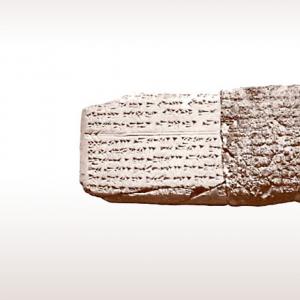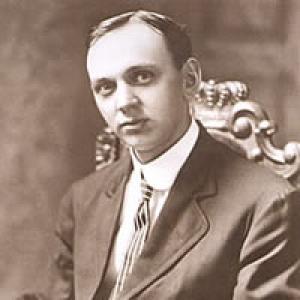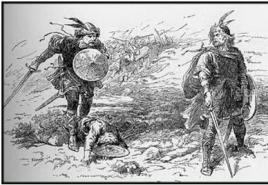Academy of Railways and Communications. Moscow State Transport University
Noun - this is an independent part of speech, designating an object and answering the question "who?", "what?" Is one of the main lexical categories; in sentences, the noun, as a rule, acts as a subject or object, as well as a circumstance and predicate.
A noun names objects in the broad sense of the word; these are the names of things (chair, house, bed, knitting needles, sledges), persons (child, boy, girl, man, person), substances (cereals, flour, salt, cream), living beings and organisms (cat, lion, crow , woodpecker, snake, crucian carp, pike; bacteria, virus, microbe), facts, events, phenomena (fire, celebration, conversation, holidays, sadness, joy, happiness, love), geographical locations (Russia, Ukraine, Latvia, Baikal, Moscow, Asia, Antarctica), as well as qualities, properties, actions, states (generosity, stinginess, redness, walking, calculating, crushing).
Permanent signs of a noun are:
1. Commonality
A) Common noun (names of similar objects, actions or states): house, article, bed, tree, swing;
B) Proper name (the names of individual objects separated from a number of homogeneous ones: names, surnames, geographical names etc.): Ivan Orlov, Mars, Sochi;
2. Soulfulness
Animated nouns denote living beings (people and animals), and inanimate nouns are an object in the proper sense of the word, in contrast to living beings. This category is manifested in the declension of nouns, namely in the accusative plural: form accusative case the plural of animate nouns coincides with the genitive form, and inanimate - with the nominative form. For example, “I see Vasya” and “I see the table”. For masculine nouns (except for -а, -я) the same thing happens in the singular.
3. Discharge
A) specific (names specific objects and phenomena from reality): a girl, a ball, a hoop, a jump rope;
B) real (denotes a substance that cannot be divided into components): silver, milk, salt, honey
C) abstract (denotes some kind of abstract action, state, quality, property or concept): love, happiness, kindness, punctuality, blue.
D) collective (denotes a set of persons or objects as an indivisible whole): youth, children, merchants, students.
4. Declination
5. Genus
All nouns (except those that are always used in plural: pants, canned food, day, elections, scissors, etc.) belong to one of three genera: male, female, or average.
The masculine gender is a type of the gender category, characterized by a certain form change, and in animate nouns, by the belonging to it of the masculine creatures (dad, cat, chair, mansion).
The feminine gender is a kind of gender category, characterized by a certain form change, and in animate nouns, by the belonging to it of feminine creatures (mother, cat, stool, room).
There are nouns of a general gender that can be correlated with both masculine and feminine persons: orphan, incognito, slob, protege.
The neuter gender is a kind of the category of the genus, characterized by a certain form change (partially coincides with the form change of the masculine gender) and the meaning of inanimate (window, sky, sun, time, flame, child);
Also important noun attribute is the number.
Nouns are used in the singular when talking about one thing (horse, river, door, field).
Nouns are used in the plural when talking about two or more objects (horses, rivers, doors, fields).
According to the peculiarities of the forms and meanings of the singular and plural, the following are distinguished:
1) nouns that have both singular and plural forms, such as: pupil - pupils; apartment - apartments; person people;
2) nouns that have only the singular form, such as: kids, milk, freshness, delivery, Moscow, flame.
3) nouns that have only plural forms, such as: pants, canned food, day, elections, scissors.
MORPHOLOGY is the section of grammar that studies different aspects words: its belonging to a certain part of speech, structure, forms of change, ways of expressing grammatical meanings.
PARTS OF SPEECH are lexical and grammatical categories into which the words of the language break down due to the presence of
- semantic feature (some general meaning accompanying a specific lexical meaning of the given word),
- morphological character (systems of grammatical categories specific to a given category of words),
- syntactic feature (features of syntactic functioning).
In Russian, independent and official words are distinguished.
INDEPENDENT PARTS OF SPEECH
Independent (significant) parts of speech are the categories of words that name an object, action, quality, state, etc. or indicate them and which have an independent lexical and grammatical meaning and are members of the sentence (major or minor).
Independent parts of speech include:
- noun,
- adjective,
- numeral,
- pronoun,
- verb,
- adverb.
24. Noun - this is an independent part of speech that combines words denoting objects and animate beings (meaning of objectivity) and answering the questions who? what? This meaning is expressed with the help of independent categories of gender, number, case, animate and inanimate. In a sentence, nouns Basically act as a subject and object, but they can be other members of the sentence.
24.1. The categories of nouns: common nouns, specific, collective.
Depending on the lexical and grammatical features, nouns are divided into:
- common nouns (names of similar objects, actions or states): house, bed
- own (names of single objects, selected from a number of homogeneous - names, surnames, geographical names, and d-): Vanya Petrov, Pluto, Moscow;
- concrete (they call concrete objects and phenomena from reality): a boy, a station and abstract (abstract) (they call an object or a feature abstracted from the actor or bearer of the feature): hatred, love, care;
- collective (denote a collection of the same or similar to each other individual items as one whole): students, sheet.
24.2. Lexico-grammatical categories of nouns:
24.1. The category of animate-inanimate: animate nouns denote living beings (people and animals), and inanimate nouns are an object in the proper sense of the word, in contrast to living beings. This category is manifested in the declension of nouns, namely in the accusative case of the plural: the accusative case of the plural of animate nouns coincides with the form of the genitive case, and inanimate - with the form of the nominative case. For nouns of the MALE gender (except for -а, -я) the same thing happens in the singular.
The masculine gender is a kind of gender category, characterized by a certain form change, and in animate nouns, by the belonging to it of the masculine creatures (father, cat, table, house).
The feminine gender is a kind of gender category, characterized by a certain form change, and in animate nouns, by the belonging of feminine beings to it (mother, cat, bench, terrace).
There are nouns of a general gender that can be correlated with both masculine and feminine persons: slob, orphan, incognito, protege.
The neuter gender is a kind of the category of the genus, characterized by a certain form change (partially coincides with the form change of the masculine gender) and the meaning of inanimate (window, sky, sun);
24.2.3. Number category: in Russian there is a singular form (denotes one for a series of homogeneous objects): chair, sock, boy, and plural (denotes an indefinite set of homogeneous objects): chairs, socks, boys.
The singular and plural are distinguished by different endings, different compatibility with other parts of speech.
There are nouns that have only the singular form: some abstract nouns (love, care), collective nouns (foliage, students), proper nouns (Moscow, Siberia), some nouns denoting substance (milk, gold).
There are nouns that, on the contrary, have only a plural form: some abstract nouns (holidays, twilight), some nouns denoting substance (cabbage soup, cream), the names of some games (chess, hide and seek), some specific nouns that consist of several component parts (scissors, trousers);
24.2.4. Case category: this category is based on the opposition of case forms and denotes the relationship of the object designated by the noun to other objects, actions or signs. There are six cases in Russian: nominative, genitive, dative, accusative, instrumental, prepositional.
24.3. The declension of nouns is the case changes of nouns.
There are three declensions in Russian.
| 1 sq. |
2 sq. |
Zskl. |
| Singular: I. p. mum. uncle |
house, window-o |
night |
Plural: I. p. mothers. uncle and |
house-a, window-a houses, windows home-am, window-am window-a, house-a, houses, windows about house-ax, about windows-ah |
night and at night at night night and nights oh night-ah |
Notes: in masculine and middle nouns, in which before case ending a vowel is written and, in an unstressed position in P. the ending -i is written; in feminine nouns, this rule applies to D. and P. p.
I. p. Militia, genius, blade
R. p. militia, genius, blade
D. p. militia, genius, blade
V. p. militia, genius, blade
Etc. militia, genius, blade
P. p. about the police, about the genius, about the blade
For more information on difficult spelling of noun endings, see the "Spelling" section.
In the Russian language there are different declined nouns: these are 10 neuter nouns in -mya (flame, burden, time, udder, banner, seed, stirrup, pinch, tribe, name) - they are declined with an increase in the suffix -en- in singular in all cases , except for the instrumental, in the 3rd declension, and in the instrumental singular - in the 2nd declension, in the plural they are declined in the 2nd declension; the words mother, daughter (declined in the 3rd declension with an increase -ep-), path (in all cases in the 3rd declension and only in the instrumental - in the 2nd), child (this word is now not used in indirect cases singular).
There are also non-declining nouns (that is, they do not change in case and number). Basically, these include words of foreign language origin, which designate both inanimate objects (cafes, radio) and masculine and feminine persons (attaché, lady); they can also denote animals (kangaroos, chimpanzees), first and last names (Helen Frankenstein), place names (Baku, Helsinki), etc.
24.4. Syntactic functions of nouns
In a sentence, a noun may be; any member:
- subject: Mom goes to the store,
- addition: I asked him to give me a book.
- definition: Mom bought me a notebook with paper in a cage.
- application: The Volga River is very beautiful.
- circumstance: He achieved his goal despite the difficulties.
- predicate: My father is an engineer.
A noun is an independent part of speech that has a categorical meaning of objectivity and expresses it in the non-verbal categories of gender and animate / inanimate, as well as in the inflectional categories of number and case, and often appears in a sentence as a subject and object.
“Objectivity” as a categorical meaning in grammar is understood rather broadly. Everything that is a separate object, the subject of thought or judgment, to which various signs can be attributed - qualities, properties, states, actions, from a linguistic point of view, are an object.
Nouns can be titles
- specific items, things (hand, sheet, briefcase, roof),
- substances (gasoline, cream, iron, sugar),
- living beings and organisms (grandfather, kitten, bacteria),
- phenomena of objective reality (summer, lightning, eclipse,),
- abstract properties, qualities, character traits (pity, joy, whiteness),
- action (singing, swimming, jumping),
- states (sadness, boredom).
The morphological characteristics of nouns include variability in cases and numbers and the presence of non-verbal categories of gender and animate / inanimate. Thus, the meaning of objectivity in nouns is expressed in the fact that nouns belong to one of three genders: masculine (crane, sofa, youth), feminine (earth, drops) or average (window, field), that a noun can have the forms of a single numbers to denote one object, phenomenon or concept (field, spark), or plural forms that have the meaning of a set (fields, sparks); the ability of a noun to express the meanings of a certain case (to go out into the field - V. p., to admire the field - T. p). Most nouns can be characterized as animate (grandson, doll) or inanimate (tree, crowd).
Giving a definition of a noun as a part of speech, we noted that the function of the subject and the object is the most characteristic for the words of this part of speech. Note, however, that the syntactic functions of nouns can be different: in principle, they can be used as any member of a sentence.
- A book is a spiritual testament from one generation to another. 2) Oh, the land of rains and bad weather ... 3) Through the valleys, over the mountains and on a white day, and at night, our knight goes incessantly. In addition to these syntactic features, nouns have other, also syntactic, properties. So, they can be determined by adjectives, participles, pronouns and ordinal numbers that agree with them in gender, number and case (adult daughter; smiling child; our neighbor; first teacher); they can form combinations of different LZ with verbs (read a book, address to a friend), adverbs (shish kebab in Georgian), words of the category of state (sorry for the time).
More on the topic Noun as parts of speech. General characteristics.:
- § 2. Oral and written forms of speech General characteristics of forms of speech
- § 5. Functional styles of speech General characteristics of styles
- 109. General characteristics of the parts of speech of the modern Russian language
- Noun as parts of speech. General characteristics.
- Adverb as part of speech. General characteristics of semantic, morphological and syntactic features
- Verb as part of speech. General characteristics of verb forms
- On the question of the part of speech belonging of participial words. General characteristics of the signs of the verb and adjective in the participle.
Noun.
A noun is a part of speech that denotes an object and answers questionswho? what?
The noun names objects in the broad sense of the word. Nouns include:
1) specific items(door, window);
2) living things(man, bird, beast);
3) a natural phenomenon (slush, snow, wind);
4) events (holiday, hike);
5) action process(running, growing);
5) abstract concepts(kindness, friendship);
1. Nouns are:
animate | inanimate |
answer the questionwho? | answer the questionwhat? |
call living things | call inanimate objects |
For example: cat, human. | For example: stone, sun. |
2. Nouns are :
3.Nouns are of three kinds:
REMEMBER! To find out the gender of a plural noun, it must be put in singular: beetles - beetle (m.r.)
4. Nouns change in numbers.
REMEMBER! Nouns with only plurals:
Vacation, rake, cream, pants, weight ,. gates, money, children, people, scissors, glasses, sleighs, perfume, canned food, hours, days.
Nouns with only singular numbers:
Furniture, hunting, oil, meat, milk, clothes, shoes, dishes, running around, onions, mashed potatoes, sugar, salt, honey, potatoes, sky, singing, poetry, creativity, lyrics, humor, weather, subway, radio, dexterity, strawberries, nettles, corn, gooseberries, carrots, health, loyalty, love, hate, coffee.
As well as neuter words of foreign originsubway, cinema, muffler, coat, radio, etc.
5. Nouns come in three declensions:
1 declension | 2 declension | 3 declension |
m.r. -and I | m.r. - | r. -b |
r. -and I | wed R. -O, -e | |
For example: uncle, glade | For example: horse, morning | For example: lilac, mouse |
6. Soft sign (s) at the end of nouns after sibilants.
B - written | B - not written |
Noun iron ore, unit hours | Noun m., |
Noun in R. p., pl. |
|
For example: mouse, brooch | For example: key, cloud |
7. Nouns change in cases.
Case | Auxiliary word | Question | Prepositions |
Nominative case | there is | Who! What? | No excuses |
Genitive | not | Whom? What? | with, from, to, from, without, at, for, around, around |
Dative | to give | Who? What? | to, by |
Accusative | to blame | Whom? What? | in, on, behind, under, through, about, through |
Instrumental case | to create | By whom? Than? | with, behind, under, before, over |
Prepositional | say | About whom? About what? | oh, oh, in, in, on |
REMEMBER! what? and is in the sentencesubject, stands in the nominative case.
The noun that answers the questionwhat? and is in the sentenceminor member,stands in the accusative case.
Algorithm for writing the unstressed ending of a noun.
1. Put a noun in the nominative case (initial form):
For example: sitting on birches ... - birchesand .
2. Determine the declension: zh.r., ending -and , therefore, the declension is 1st.
3. Find a test word: a noun of the same declension with a stressed ending:
For example: water a.
4. substitute the test word in the phrase instead of the checked word:
For example: sitting on the watere.
5. Write the same letter in the checked word. As in the test:
For example: sitting on birchese.
Endings of nouns.
Cases | 1st floor | 2nd floor | 3rd floor | In plural |
I. p. | and I spring, earth | about e elephant, wheel | rye | and i s and land, elephants, rye |
R. p. | s and spring, earth | and I elephant wheel | rye | ov (s) her land, elephants, rye |
D. p. | spring, earth | u u elephant, wheel | rye | am yam lands, elephants, rye |
V. p. | u u spring, earth | o e a i elephant, wheel | rye | and I s and her ov (s) land, elephants, rye |
Etc. | oh (her) oyu (her) in spring, by land | ohm (eat, eat) elephant, wheel | rye | ami (yami) lands, elephants, rye |
P. p. | about spring, about earth | about an elephant, about a wheel | about rye | oh (yah) about lands, about elephants, about rye |
Morphological analysis of a noun.
- Determine the part of speech.
- Specify initial form (singular, nominative).
- Indicate persistent signs:
A) animate or inanimate;
B) own or common noun;
B) genus;
D) declination.
4. Indicate inconsistent signs:
A) number;
B) case.
5. Indicate the semantic question that we ask for the noun. Determine which member of the sentence the noun is.
Sample:
They wrote on the blackboard with chalk.
- They wrote (on what?) On the board - n.
- N.F. - board;
fast. pr .: inanimate., common., f.r., 1st floor;
unpost pr .: singular, p.p.
III. They wrote (where?) On the board - a circumstance.







